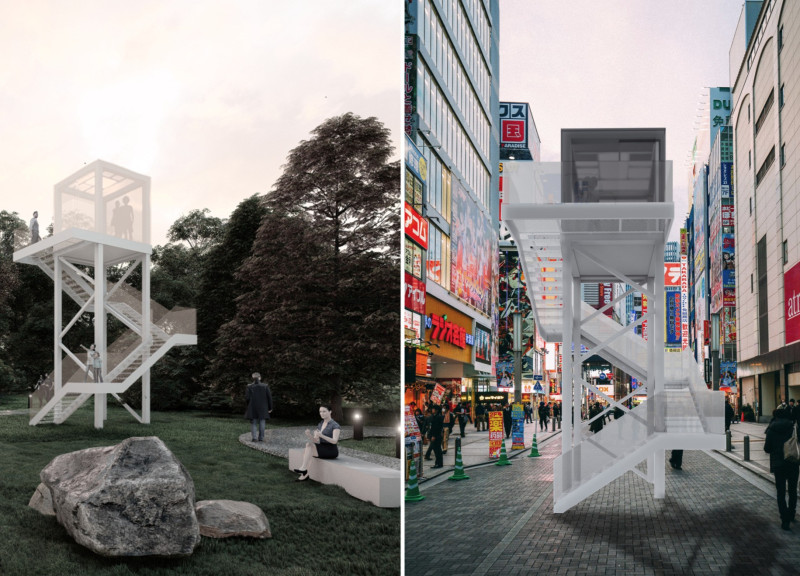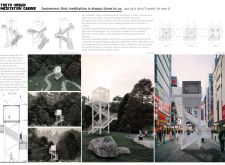5 key facts about this project
The Tokyo Urban Meditation Cabins serve as a peaceful retreat within the bustling urban landscape. Designed for meditation and self-reflection, these cabins create an elevated space, providing users a way to distance themselves from the distractions of city life. With a focus on a cube form that rises above the streets, the design invites individuals to engage in mindfulness away from the city's noise.
Form and Geometry
The cabins are designed as simple cube structures that blend into the urban backdrop. This geometric form serves to establish a clear visual identity while maintaining a humble presence in the skyline. The elevation of the cabins provides a physical separation from the chaos below, allowing users to experience a sense of refuge.
Spatial Organization
Inside the cabins, thoughtful planning creates an inviting journey. A winding pathway encircles the central metallic structure, offering a route that encourages reflection. This arrangement helps users connect more deeply with their surroundings, aligning with the meditative purpose of the space. The design prompts visitors to move mindfully and consider their experiences.
Light and Atmosphere
Natural light is a key element of the cabin's experience. A light source positioned at the top illuminates the interior space with a gentle glow. This soft light creates an atmosphere that supports contemplation. The interaction between light and shadow is integral to the design, enhancing a sense of calm and focus within the environment.
Materiality and Construction
Materials chosen for the cabins support the design's vision. The lightweight metallic structure provides essential support, allowing for an open and airy space. Translucent glass allows natural light to enter while maintaining privacy. This careful material selection strengthens both the function and the appearance of the meditation cabins.
Light enters the cabins in soft streams, and the outside noise fades, creating a tranquil environment ideal for reflection and mindfulness.























